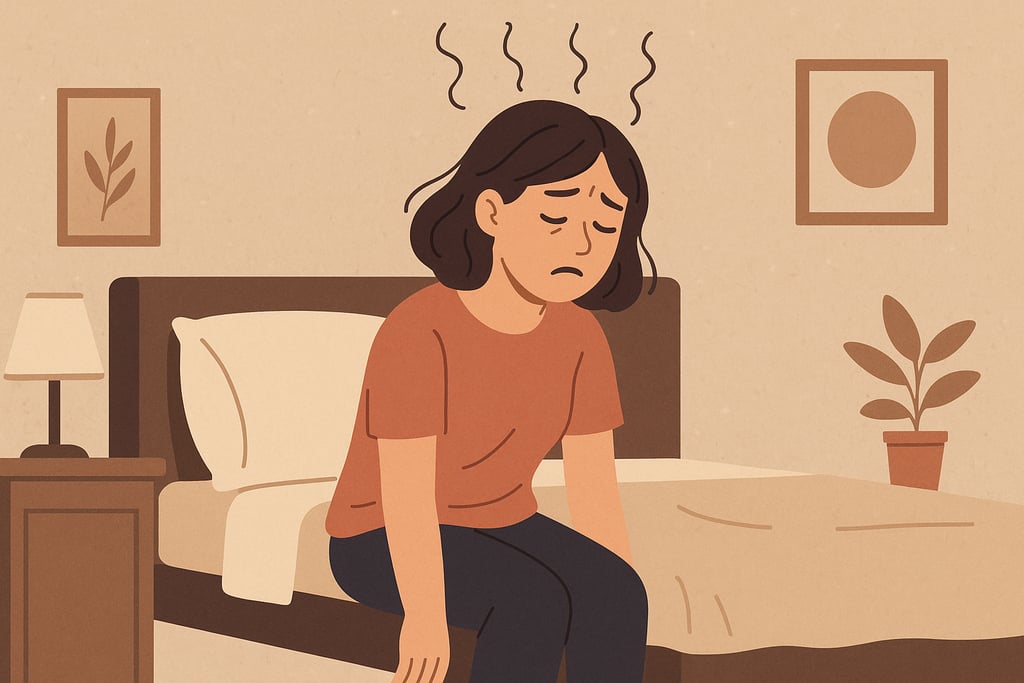Why You're Still Tired After Resting: The Cost of Emotional Burden
Understand the hidden link between emotional trauma, fatigue, and burnout. Learn why rest doesn’t always heal and how to reconnect with your energy.
TRAUMA & HEALING
Ashik Zaman
7/25/20252 min read


You got eight hours of sleep. You took the weekend off. You even booked that getaway you thought would recharge you.
So why are you still exhausted?
Fatigue that doesn’t go away with rest is not laziness. It’s often a sign of emotional trauma stored in the body. In this second part of our Trauma and Healing series, we dive deep into how chronic emotional stress depletes our nervous system and how healing fatigue is more than just sleeping more.
The Burnout Behind the Smile
We live in a culture that praises productivity, but rarely honors emotional survival. Many of us walk around with:
Smiles hiding grief
Workaholism masking fear of failure
People-pleasing rooted in old survival patterns
This constant emotional tension drains your energy faster than a hard day’s work.
According to Dr. Gabor Maté, unprocessed emotional stress can weaken the immune system and create a constant state of fight-or-flight. That means your body is always on alert, even while you're sitting still.
How Trauma Hijacks Your Energy
When your nervous system is overloaded, rest alone can’t fix it. Here’s why:
Hypervigilance: Even in safe situations, your body acts as if danger is near.
Suppressed Emotions: Takes energy to keep feelings buried.
Muscle Tension: Chronic tightness from stress burns more energy.
Disconnection: Emotional numbness makes it harder to feel restored.
Trauma is not just psychological—it’s physiological. It lives in your posture, your breath, your digestion, and your fatigue.
Symptoms of Trauma-Induced Fatigue
Feeling tired after doing very little
Frequent illnesses or chronic pain
Brain fog or difficulty concentrating
Emotional flatness or apathy
Anxiety mixed with exhaustion
You may think you're "lazy," but you're actually in a state of survival-level exhaustion.
Rest Is Not Always Restoration
Rest means stopping. Restoration means reconnecting. Trauma survivors often struggle with restoration because:
Stillness can feel unsafe
Self-care feels like a chore
Trust in the body has been broken
True restoration requires creating safety within. That starts by listening to your body with compassion.
Pathways to Reclaiming Energy
You don’t need to force your way out of fatigue. You need to feel your way through it.
Somatic Practices: Yoga, breathwork, body scans
Nervous System Regulation: Polyvagal exercises, vagus nerve stimulation
Creative Expression: Drawing, journaling, movement
Compassion-Based Therapy: Trauma-informed counseling, EMDR, IFS
Each practice signals to your body: you’re safe now. And safety is where energy returns.
You are not lazy. You are carrying more than your body was designed to hold alone. Your exhaustion is valid. Your healing is possible.
In the next post, we’ll explore the concept of the "inner child" and how revisiting childhood wounds is often the key to adult freedom.
References & Further Reading:
Maté, Gabor. When the Body Says No: The Cost of Hidden Stress. Vintage Canada, 2011.
Van der Kolk, Bessel. The Body Keeps the Score. Penguin Books, 2015.
Levine, Peter. Healing Trauma: A Pioneering Program for Restoring the Wisdom of Your Body. Sounds True, 2008.
Porges, Stephen. The Polyvagal Theory. W. W. Norton & Company, 2011.

